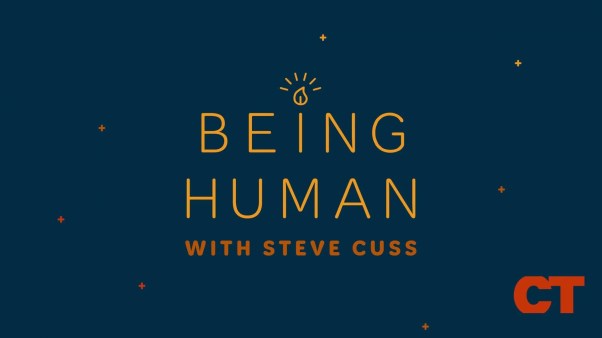Missing the Point
Book reviewing, as the Literary Review recently noted, has lost its serrated edge. Critics who used to rip the masks from charlatans are now more concerned with quid pro quos. Except, perhaps, in Books & Culture, where Sarah Ruden still sharpens her pen. I am all for reviews that do not merely laud, but when an author fails to bite into the texts she critiques, her writing become more like a rant than a review. Ruden’s misleading takedown of my and Miles Hollingworth’s recent books on Augustine fails on that score [“Missing the Point,” May/June]. While Ruden was expressing cynicism about the state of academic publishing and the prices of books, I was trying to figure out what her essay had to do with our scholarship.
Ruden portrays my Stricken by Sin, Cured by Christ as a condescending attack on Augustine. To the contrary, my book is actually an attempt to understand and defend the conceptual core of his often maligned doctrines of original sin and operative grace. Half of the book is intellectual history. Augustine’s anti-Pelagian sermons, letters, and treatises have been widely denigrated as merely polemical, but I show that they are rich and insightful. In the second half of the book, I argue that Augustine’s ideas, including his use of medical analogies between sin and sickness and grace and surgery, offer insight into our own agency and into ways of thinking about freedom that we have largely forgotten.
Among my targets are those who believe that Augustine’s mature soteriology is, as Hollingworth puts it, at odds with the laws of ownership and responsibility and their relationship to virtue. But Ruden lumps my work together with Hollingworth’s, apparently because we both read Augustine for more than his literary value. Who are we, she wonders, to criticize or try to improve upon a literary genius?
The suggestion that Augustine should not be criticized either makes him infallible or consigns him to the status of a museum curiosity. Theologians from Anselm to Barth would be surprised by Ruden’s claim that Augustine cannot be improved upon, since much of Western theology is the history of trying to do just that. Honoring Augustine as one’s teacher has not meant merely repeating his words in different languages. If Augustine is also to be for us a genuine interlocutor, part of a living tradition, we must address him as a conversation partner who can be challenged as well as admired. Augustine’s valuable but neglected late writings on original sin, predestination, and free will surely deserve that much respect.
Jesse Couenhoven Associate Professor of Moral Theology Villanova University
Sarah Ruden replies:
Jesse Couenhoven seems to have missed the point again. I don’t consider Augustine either “infallible” or a “museum curiosity,” as I think my review makes clear. What I don’t think can be improved on in Augustine is that he is a religious thinker who is warm, lively, and highly readable, someone this review’s readers might well want to meet in his own words. He is not a theologian at all, as in an adherent of a subcategory of philosophy with a distinct, abstraction-heavy vocabulary. (In the strict etymological sense of “talking about divinity,” theology may date back to the Pre-Socratic period; we’re all theologians, if that’s what the word means.)
My long lead-in about the state of academic publication was an attempt to place these two books in a broader context (a context I think has its own interest, if only in that we all indirectly but expensively subsidize this industry) rather than going straight into opining that neither book gives Augustine the inviting and respectful exposition he deserves. I was trying to be more balanced and analytical, giving what I saw as the bigger picture, and I’m sorry if I took too long to get to the point myself.
I probably seem harsh in my expectations; maybe particularly harsh in that these are books concerning a great author’s works (as well as his life and times). As a translator, certainly, I ought to be sympathetic about the hopelessness of competing with genius for attention. When I read the review headline “It’s Better in Latin” as a judgment of my own version of the Aeneid, my response was “Duh, you jerk!” But as long as people look for new takes on old masterpieces (and they always will), how far short we fall is going to matter.
Copyright © 2015 by the author or Christianity Today/Books & Culture magazine.Click here for reprint information on Books & Culture.








